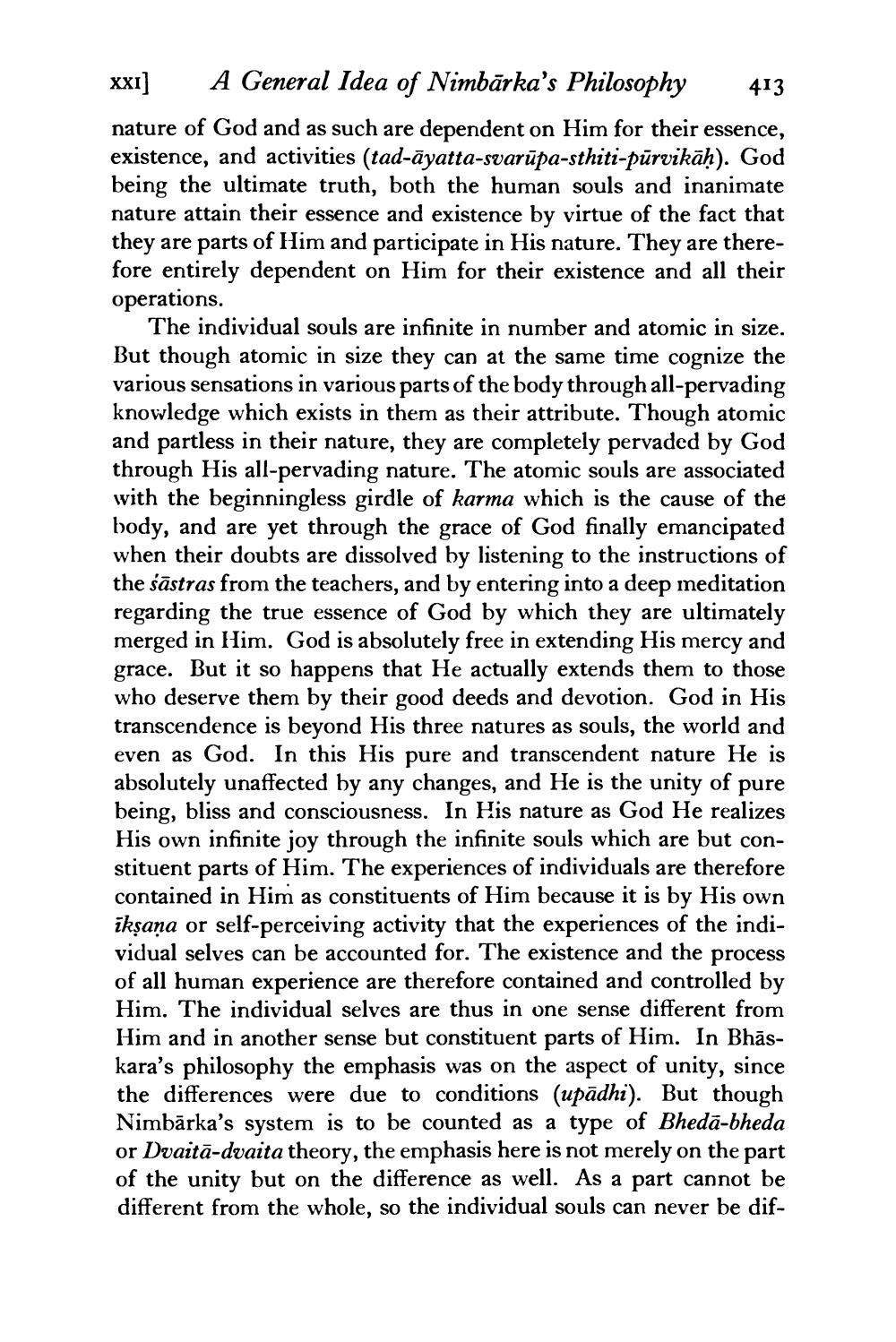________________
XXI] A General Idea of Nimbārka's Philosophy 413 nature of God and as such are dependent on Him for their essence, existence, and activities (tad-āyatta-svarūpa-sthiti-pūrvikāḥ). God being the ultimate truth, both the human souls and inanimate nature attain their essence and existence by virtue of the fact that they are parts of Him and participate in His nature. They are therefore entirely dependent on Him for their existence and all their operations.
The individual souls are infinite in number and atomic in size. But though atomic in size they can at the same time cognize the various sensations in various parts of the body through all-pervading knowledge which exists in them as their attribute. Though atomic and partless in their nature, they are completely pervaded by God through His all-pervading nature. The atomic souls are associated with the beginningless girdle of karma which is the cause of the body, and are yet through the grace of God finally emancipated when their doubts are dissolved by listening to the instructions of the śāstras from the teachers, and by entering into a deep meditation regarding the true essence of God by which they are ultimately merged in Him. God is absolutely free in extending His mercy and grace. But it so happens that He actually extends them to those who deserve them by their good deeds and devotion. God in His transcendence is beyond His three natures as souls, the world and even as God. In this His pure and transcendent nature He is absolutely unaffected by any changes, and He is the unity of pure being, bliss and consciousness. In His nature as God He realizes His own infinite joy through the infinite souls which are but constituent parts of Him. The experiences of individuals are therefore contained in Him as constituents of Him because it is by His own ikșaņa or self-perceiving activity that the experiences of the individual selves can be accounted for. The existence and the process of all human experience are therefore contained and controlled by Him. The individual selves are thus in one sense different from Him and in another sense but constituent parts of Him. In Bhāskara's philosophy the emphasis was on the aspect of unity, since the differences were due to conditions (upādhi). But though Nimbārka's system is to be counted as a type of Bhedā-bheda or Dvaitā-dvaita theory, the emphasis here is not merely on the part of the unity but on the difference as well. As a part cannot be different from the whole, so the individual souls can never be dif




